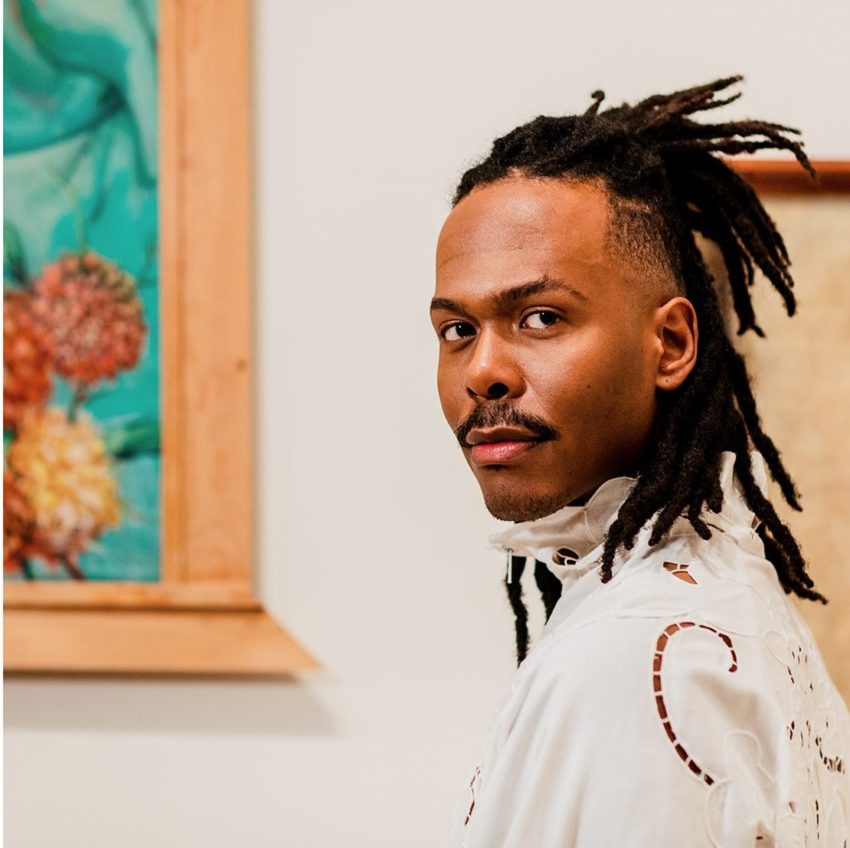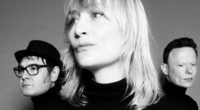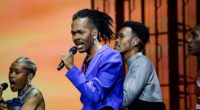
Today, Jeangu Macrooy and Dutch Television (AVROTROS) revealed the Dutch and host entry for the Eurovision Song Contest 2020. With the song ‘Birth Of A New Age’, he is hoping to follow up their 2019 winner with yet another good result.
Jeangu held a special on-line remote show to reveal what will become The Netherlands entry this year. Macrooy would have performed Grow, at last years cancelled contest. This year he will sing Birth Of A New Age
As the winner of the Eurovision Song Contest 2019, The Netherlands will head straight to the finals to be held on May 22, 2021. If keeping the same draw as 2020, Jeangu will perform in position 23 in the final.
The official video for Birth Of A New Age will be released tomorrow at 12:00 CET.
In the video, you can listen to the live presentation of this year’s Dutch Eurovision entry, followed by a Q&A session with Jeangu Macrooy, hosted by Cornald Maas. Below the video you can read more about Jeangu Macrooy.
Jeangu Macrooy was born on 6th of November 1993, in Paramaribo, Suriname. He moved to The Netherlands in 2014.
Before arriving in The Netherlands, Jeangu released his debut album, Stars In My Radio, as part of the group he had formed with his brother, Betweeen Towers.
Studying in The Netherlands, Jeangu collaborated with producer, Perquisite, and released his first solo album, High On You in 2017.
After touring the Low Countries and visiting back home, Jeangu released his second solo album, Horizon in 2019. The following year he was asked to represent The Netherlands at the Eurovision Song Contest.
The Netherlands at The Eurovision Song Contest
Let’s take a walk through how this year’s host country has performed through the decades.
Fifties: As one of the countries to debut in the first ever contest, The Netherlands became the first country to win the contest twice. In 1957, Corry Brokken won the second contest with Net Als Toen, and Teddy Scholten won the last contest of the decade with .
Sixties: This decade saw The Netherlands finish last on three occasions, 1962,1963 and 1968.
Through this decade they finished in every position between 10th and 16th. The only time they did well was in 1969, when Lenny Kuhn, shared the win with three other countries with her song .
Seventies: The Netherlands began this decade gaining three Top 10 positions in a row. After Ben Cramer placed 14th in 1973, the country bounced back in 1974, placing third with I See A Star by Mouth and MacNeal. In 1975, they won the contest with Teach-In and Ding A Dong. Sandra Reemer merits a special mention for representing the country three times in the seventies, ending the decade, leading the group, Xandra to 12th place with Colorado.
Eighties: Maggie MacNeal started the decade by gaining the first two sets of 12 points with Amsterdam, but she ended up in 5th place. It wasn’t until 1987, that the country returned to the Top 5 with Marcha and Rechtop In De Wind. They ended the decade with a string of middling results, ending in a 15th place in 1989 for Justine Pelmelay and Blijf zoals je bent.
Nineties: Again the country breezed through this decade with mixed results.In 1993, Ruth Jacott finished 6th with Vrede. They also placed 7th, 8th and 9th in 1996, 1999 and 1992 with Maxine and Franklin Brown, Marlayne and Humphrey Campbell. Their best result this decade was in 1998 when Edsilia Rombley placed 4th with Hemel En Aarde.
Noughties: This decade was a total washout for The Netherlands. In 2000, Linda Wagenmakers came 13th with No Goodbyes. In 2003, Esther Hart equalled it with One More Night. In 2004 Re-Union came 20th with Without You, and then for the rest of the decade, the country failed to qualify to the finals.
Tens: The spate of non qualifications continued to 2012, bringing the total to a record-breaking 8. In 2013, Anouk finally broke the cycle by placing 9th with Birds. Better yet came the following year when The Common Linnets took the runner-up spot with Calm After The Storm. After dropping down the table again in subsequent years, Duncan Laurence ended the decade by bringing the title back to The Netherlands with Arcade.




















